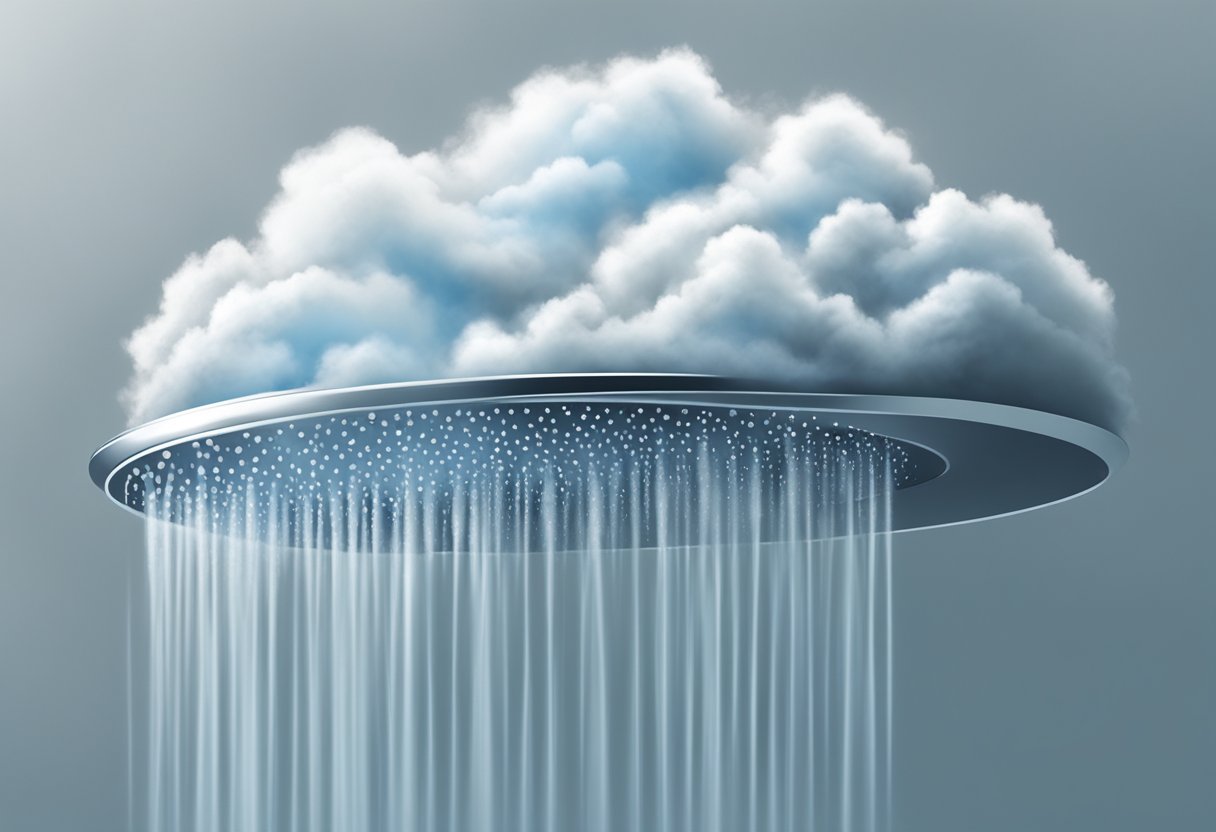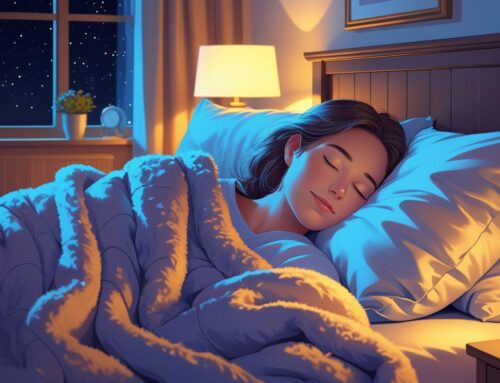Taking a cold shower before bed affects sleep differently depending on the person. Cold showers reduce muscle soreness and inflammation, however, they do not always make falling asleep easier. Some people say a cold shower relaxes them and cools the body, which improves sleep quality.
Cold showers help improve sleep by lowering core body temperature and relieving muscle pain, however, they can also increase alertness, which might make it harder to fall asleep. Unlike hot showers, cold ones create distinct effects on the body’s temperature and mental state, so choosing the right type depends on individual needs.
Knowing when to shower and how cold water affects the body allows people to decide if cold showers suit their bedtime routine. Personal comfort, existing health conditions, and how cold exposure works alongside factors like mattress quality are important in promoting better rest.
Key Takeaways
- Cold showers reduce body temperature and ease muscle soreness, which supports better sleep.
- Cold water boosts alertness for some, making it harder to fall asleep.
- Timing and personal comfort influence whether cold showers benefit a bedtime routine.
- Pairing a cold shower before bed with a cooling mattress helps regulate body temperature and provides optimal support for a more restful sleep environment.


Cold showers before bed influence key body functions that relate to sleep quality. They affect body temperature, hormone levels, and how quickly a person falls asleep. A clear understanding of these effects reveals whether cold showers at night can actually improve rest.
Thermal Regulation and the Sleep Cycle
Cold showers lower core body temperature. This cooling supports the body’s natural drop in temperature that signals the brain to initiate the sleep cycle. However, the effects depend on timing. A cold shower taken too close to bedtime may trigger alertness rather than relaxation. For some, cold exposure eases muscle stiffness and reduces inflammation, which relieves discomfort that might otherwise disrupt sleep. This relief can lead to deeper and more restorative rest.
Athletes often rely on cold showers for these benefits, since less soreness at night improves sleep quality. For others, the sudden cold might be too stimulating and doesn’t aid sleep.
Impact on Melatonin and Circadian Rhythm
Melatonin, the hormone that regulates sleep-wake cycles, responds indirectly to changes in body temperature. By lowering core temperature, cold showers support the natural conditions that favor melatonin production. This cooling effect helps align the circadian rhythm with the body’s rest phase. Even so, cold showers do not directly raise melatonin levels. Instead, they aid the body’s natural process by creating a sleep-friendly environment.
People with irregular sleep patterns may experience slight improvements if a cold shower helps reset their internal clock. However, individual sensitivity to cold varies, and so do the results.
Effects on Sleep Latency
Sleep latency refers to how long it takes to fall asleep once in bed. Cold showers may shorten this period for certain individuals. They lower body temperature and ease physical tension, both of which promote faster sleep onset.
That said, not everyone experiences these benefits. Some people feel too cold or overstimulated afterward, which delays falling asleep. Those who handle cold exposure well and time their showers about 60 to 90 minutes before bed often find it easier to drift off more quickly than usual.

Choosing between a cold or hot shower before bed depends on what a person wants to achieve, whether it’s relaxation or a refreshed feeling. Each option affects the body and sleep in different ways, so knowing their individual benefits can guide the best decision.
Hot Versus Cold Shower Benefits
Hot showers raise body temperature, and the cooling that follows after stepping out encourages relaxation. This drop in body heat signals the brain that it’s time to sleep, which makes it easier to fall asleep faster. Hot water also relaxes muscles and eases tension, helping reduce stress before bed.
Cold showers, on the other hand, lower body temperature right away. This sudden coldness can feel energizing and alert the body. Cold water also boosts circulation and may relieve muscle soreness. However, since cold showers can stimulate the body, they may make it harder for some people to feel sleepy afterward.
Warm or Cold Shower Before Bed
Most experts agree that a warm or hot shower before bed improves sleep more effectively than a cold one. The warmth calms the body and promotes drowsiness. Many people find that warm showers help settle both the body and mind at night.
Cold showers may work better in hot climates or when someone feels too warm before bed. The cool water reduces body heat and offers relief. Still, cold showers tend to activate the nervous system, which isn’t helpful for those who already struggle to fall asleep.
A warm shower remains the better option for sleep in most cases. Still, cold showers can meet specific needs, such as cooling.

The timing of a shower can affect sleep quality. Choosing when to shower depends on body temperature changes and personal preferences for relaxation. Showering before bed or earlier in the evening offers different benefits worth considering.
Showering Before Bed Versus Other Times
Showering about one hour before sleep often improves rest. A warm shower during this window helps lower body temperature afterward, which signals the brain that it’s time to sleep. This natural cooling process supports falling asleep faster and staying asleep more deeply.
Cold showers right before bed don’t work for everyone, since the body may remain too alert. Cooler showers usually serve better earlier in the day, as they help promote wakefulness.
Showering too close to bedtime, especially with very hot water, can keep the body too warm, which makes it harder to fall asleep. Waiting 30–60 minutes after a warm shower gives the body time to cool down and increase comfort in bed.
Nighttime Shower Routines
A consistent shower routine can signal the start of the body’s wind-down phase. Many people choose a warm bath or shower about an hour before bed to relax and mentally shift into rest mode. Some combine their showers with calming activities like reading or meditation. The warm water acts as a reset between the demands of the day and bedtime.
Water temperature should match what feels most calming. Warm showers help ease muscle tension and promote comfort. Cold showers might feel refreshing earlier in the evening, though less effective right before sleep.
Adjusting both the timing and temperature of your shower allows for a personalized approach to better sleep.

Cold showers before bed affect people differently, depending on their health and how their bodies respond. Some may feel more energized than relaxed, which makes falling asleep more difficult. Others should avoid cold showers at night due to specific health risks.
When Not to Take a Cold Shower Before Bed
People with heart problems or high blood pressure need to be cautious with cold showers before bedtime. Cold water causes blood vessels to tighten, which may raise blood pressure and place additional stress on the heart.
Cold showers can also raise cortisol levels, the stress hormone, which interferes with relaxation. Those who are sensitive to cold may start shivering, which makes it harder to unwind. Anyone who often feels anxious or restless at night could find that cold showers worsen those feelings. People who react to cold showers with stimulation instead of calm should avoid this routine before sleep.
Potential Drawbacks of Nighttime Cold Showers
Cold showers at night may overstimulate the body, causing trouble with falling asleep. The body’s natural sleep cycle requires a gradual cooldown, whereas sudden cold exposure could increase alertness instead.
Some people feel muscle tension or discomfort afterward, which prevents full relaxation before bed. Frequent exposure to cold water might lead to dry skin or irritation, affecting both comfort and sleep quality.
Showering at night is not harmful in general, but choosing between cold or warm water depends on personal tolerance and health conditions. Warm showers tend to relax muscles and lower stress more safely than cold showers for most individuals.

Showering before bed offers more than just better sleep, it also supports healthier skin and calms the mind. These benefits can enhance how a person feels through the night and into the next day.
Skin and Hygiene Advantages
Showering at night removes the sweat, dirt, and oils that collect throughout the day. This clears pores, reduces the risk of irritation or acne, and washes away pollutants that can trigger inflammation. Warm water opens the pores for a deeper cleanse. Once clean, the skin absorbs moisturizers more effectively, which helps it stay hydrated.
Going to bed with clean skin also limits the transfer of bacteria and oil onto bedding. As a result, sheets stay fresher longer, and skin issues caused by dirty linens may lessen.
Relaxation and Stress Relief
A warm shower relaxes the muscles and relieves tension built up during the day. This release may lower stress hormone levels and ease the body into rest mode. The warmth and rhythm of running water create a soothing effect on the mind. This helps reduce anxious thoughts and sets the tone for deeper sleep.
Showering at night also supports thermoregulation. After stepping out of the warm water, the body begins to cool down, a natural signal that it’s time to sleep. This shift helps the body fall asleep faster and rest more soundly.
A cold shower before bed can help lower the body’s core temperature, which is important for falling asleep. As the body cools down naturally, it signals that it’s time to rest. This temperature drop can help some people relax and prepare for sleep.
However, cold showers can also stimulate some people, raising alertness rather than calming the mind. It is important to pay attention to how the body reacts, as not everyone benefits the same way from cold showers before sleep.
Mattresses also affect sleep quality. A mattress that provides proper support can reduce discomfort and prevent waking up during the night. Good support helps keep the spine aligned, which minimizes muscle strain. A mattress with cooling features can complement the effects of a cold shower. It helps maintain a comfortable temperature throughout the night for a better sleep environment.
Here’s a simple list of benefits from using both:
- Cold shower helps regulate body temperature.
- Mattress provides physical support and comfort.
- Cooling mattress materials keep temperature steady.
- Fewer sleep disruptions due to discomfort.
Choosing both a mattress and shower routine that suit individual needs can improve rest. Personal preference is important in determining the best method for better sleep.
If you’re looking for a mattress that enhances the benefits of a cold shower before bed, the Brooklyn Bedding Aurora Luxe Cooling is an excellent choice. This hybrid mattress is specifically designed to regulate body temperature and provide optimal support for your pre-sleep routine.
- Advanced Cooling Technology: The Brooklyn Bedding Aurora Luxe Cooling features a GlacioTex Cooling Cover and cooling-infused foam layers. These elements work together to remove excess heat from your sleep surface to ensure you stay cool and comfortable throughout the night.
- Hybrid Airflow Design: Its hybrid construction incorporates open-cell foam and individually encased coils for optimal airflow and breathability. This design prevents heat retention to enhance the cooling effect initiated by your cold shower.
- Personalized Comfort: Brooklyn Bedding Aurora Luxe Cooling is available in soft, medium, and firm options, allowing you to select the firmness that best suits your sleep preferences for both comfort and support.
- Pressure Relief and Support: The mattress combines premium foam layers with zoned pocketed coils to provide targeted support and pressure relief, promoting proper spinal alignment and reducing muscle strain.
- Durable and Safe Materials: Made with CertiPUR-US certified foams and GREENGUARD Gold certification, the Aurora Luxe ensures low chemical emissions and contributes to a healthier indoor environment.
By pairing the Brooklyn Bedding Aurora Luxe Cooling with your cold shower routine, you can create an optimal sleep environment that promotes restful and uninterrupted sleep.

Frequently Asked Questions
Cold showers can affect the body in various ways depending on the timing and individual response. They may influence sleep quality, alertness, and body temperature, with both positive and negative effects possible.







